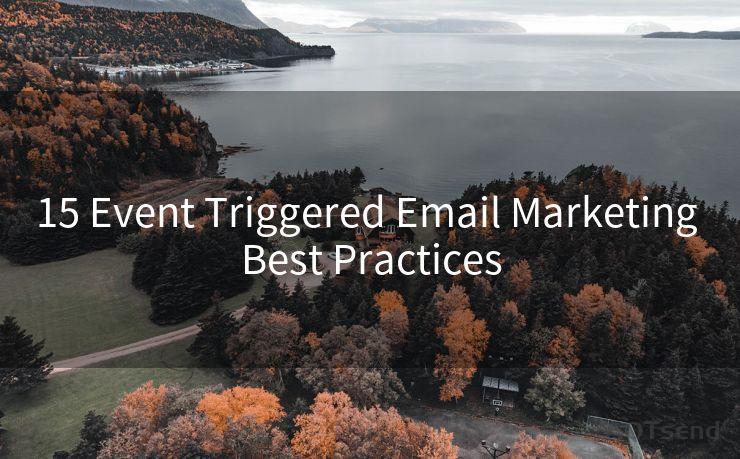15 Event Triggered Email Marketing Best Practices




Email marketing remains a powerful tool for businesses to engage with their customers. Among various email marketing strategies, event-triggered emails stand out for their timeliness and relevance. Here are 15 best practices for effective event-triggered email marketing.
1. Identify Key Events
The first step is to identify the key events that trigger emails. These could include user registrations, purchases, abandoned carts, or even birthday wishes.
2. Personalize Content
Personalization is key. Use the recipient's name, purchase history, or browsing behavior to craft emails that speak directly to them.
3. Clear and Concise Messaging
Keep your emails short and sweet. Get to the point quickly and make sure the call to action is clear.
4. Timely Delivery
Timing is everything. Send emails immediately after the triggering event for maximum impact.
5. Mobile-Friendly Design
Most emails are now opened on mobile devices. Ensure your emails are mobile-responsive and easy to read on small screens.
6. Test and Optimize

Regularly test your emails for deliverability, open rates, and click-through rates. Use A/B testing to optimize your content and design.
7. Segment Your Audience
Not all customers are the same. Segment your email lists based on demographics, purchase history, or other relevant criteria to ensure relevant messaging.
8. Balance Promotion and Value
While promoting your products or services, don't forget to provide value to the customer. Useful tips, guides, or exclusive offers can enhance the customer experience.
9. Clear Call to Action
Every email should have a clear call to action, whether it's visiting a webpage, making a purchase, or downloading an app.
10. Unsubscribe Option
Always include an unsubscribe link to comply with email marketing regulations and respect user preferences.
11. Monitor Frequency
Don't bombard your customers with too many emails. Find the right balance between staying connected and avoiding spam complaints.
12. Use Dynamic Content
Utilize dynamic content blocks to show different messages to different segments of your audience within the same email campaign.
13. Measure Performance
Track key metrics like open rates, click-through rates, conversions, and unsubscribe rates to measure the effectiveness of your emails.
14. Follow Up
Don't just send one email and forget about it. Plan a series of follow-up emails to nurture leads and convert them into customers.
15. StayCompliant
Familiarize yourself with email marketing regulations like CAN-SPAM and GDPR to ensure your campaigns are legal and ethical.
By following these 15 event-triggered email marketing best practices, you can effectively engage with your customers, drive conversions, and build brand loyalty. Remember, email marketing is not just about selling, but also about providing value and fostering relationships.
🔔🔔🔔
【AOTsend Email API】:AOTsend is a Managed Email Service for sending transactional emails. Support Email Types: reminders, authentication, confirmations, notifications, verification codes, invoices, password resets, account activations, billing statements, two-factor authentication (2FA), and one-time passwords (OTP) emails, etc. $0.28 per 1000 Emails. 99% Delivery, 98% Inbox Rate.
You might be interested in:
Why did we start the AOTsend project, Brand Story?
What is a Managed Email API, How it Works?
Best 25+ Email Marketing Platforms (Authority,Keywords&Traffic Comparison)
Best 24+ Email Marketing Service (Price, Pros&Cons Comparison)
Email APIs vs SMTP: How they Works, Any Difference?




Scan the QR code to access on your mobile device.
Copyright notice: This article is published by AotSend. Reproduction requires attribution.
Article Link:https://www.mailwot.com/p3037.html



